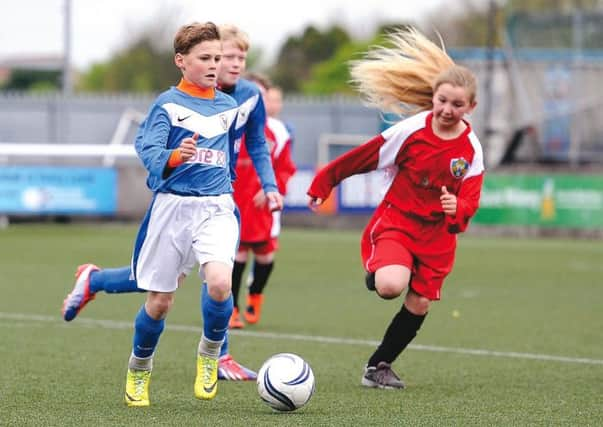Exercise improves academic ability


While boosting health and fitness are often promoted as the key benefits to increased physical activity, growing attention is now being given to its potential to impact across all areas of life.
Gregor Henderson, who advises the UK government on public health and wellbeing issues, said there was now good scientific evidence that taking part in sport boosted educational achievement, increased confidence and improved mental health.
Advertisement
Hide AdAdvertisement
Hide AdBut he said these benefits were not always recognised, which made young people less likely to take part if they believed only winning and being good at sport were important.
One example of the wider benefits of sport is in the field of educational achievement, with growing scientific evidence that activity boosts learning ability. A study by researchers at the universities of Strathclyde and Dundee last year found links between exercise and exam success in English, maths and science.
They claimed that every 15 minutes of daily exercise improved performance by an average of about a quarter of a grade, meaning it was possible that children who carried out 60 minutes of exercise every day could improve their academic performance by a full grade – for example, from a C to a B, or a B to an A.
Another project in Scottish schools – Better Movers and Thinkers (BMT) – is also taking different approaches to physical exercise using rhythm, balance and movement to improve performance in the classroom.
The issue will be discussed at the Winning Scotland Foundation’s (WSF) Your Personal Best event this week in Clydebank, where Scotland’s top athletes will meet schoolchildren from across Scotland to discuss their own challenges and achievements.
The aim is to inspire young people to succeed in whatever they choose to do by demonstrating the importance of hard work, sustained effort and learning from mistakes.
Henderson, a WSF board member, said they were keen to promote the wide range of benefits that sport can bring.
“We are beginning to drill down into what participating in sport brings to children and their families but also communities,” he said. We are trying to improve educational outcomes, health outcomes and community wellbeing.
Advertisement
Hide AdAdvertisement
Hide Ad“There is a lot of really good evidence about the links between participation in sport and physical activity and what that might be for children and young people. It increases pro-social behaviour, improves physical and mental health, and helps achieve fundamental life skills.”
Andrew Dalziell, who helped develop the BMT programme, said there was no question the benefits from physical activity stretched beyond health.
Dalziell, a PhD research student at Edinburgh University, said BMT was now being rolled out across Scotland following the success they had seen in the classroom.
“The pilot study we did found there were links between BMT being used in schools and improvements in things such as working memory and spelling,” he said.
“So definitely there is a link with getting kids more active, but also the nature of that activity can also have effects on improved confidence and self-esteem, social integration as well as academic learning itself.”